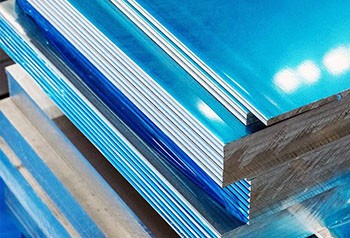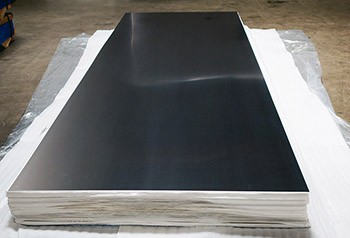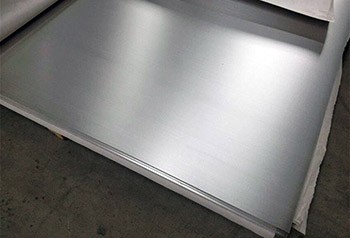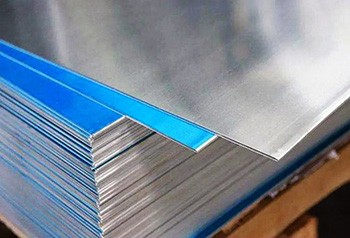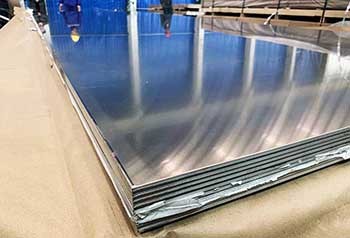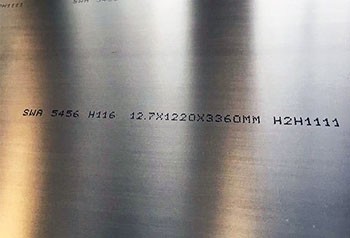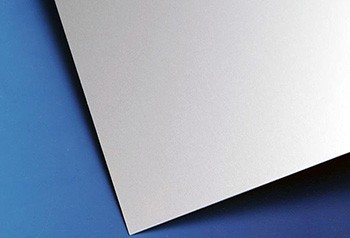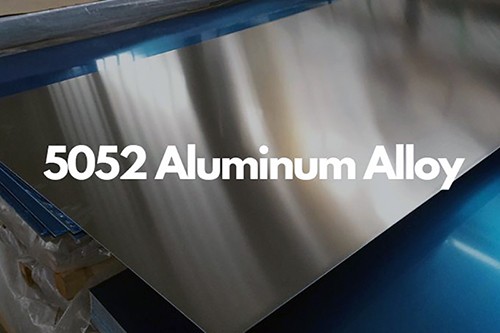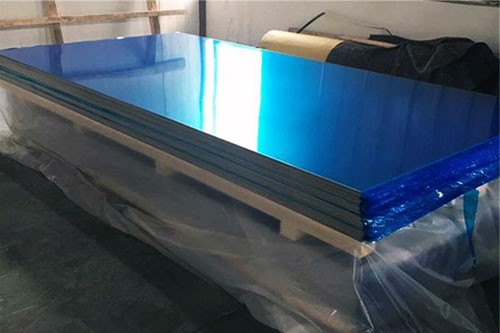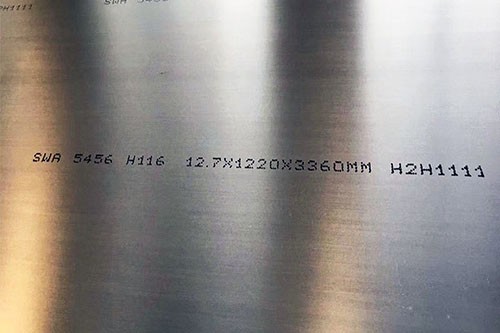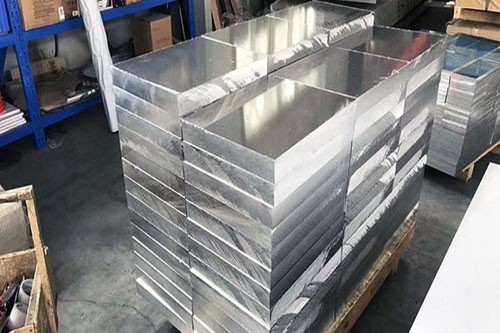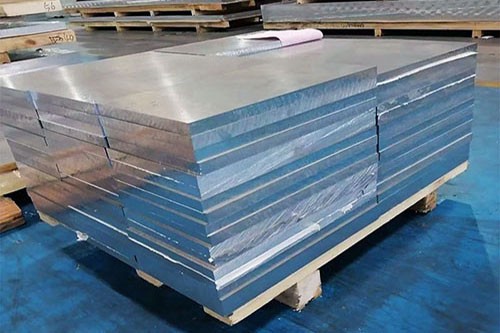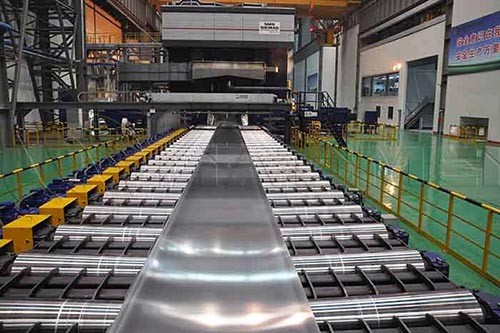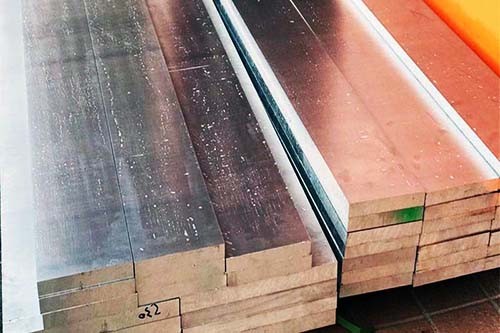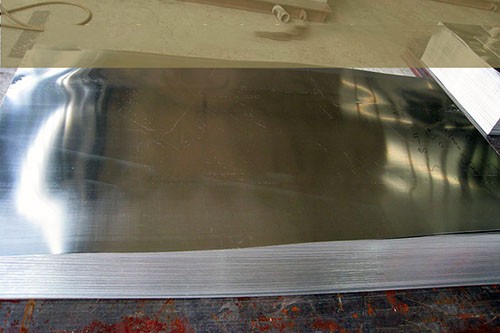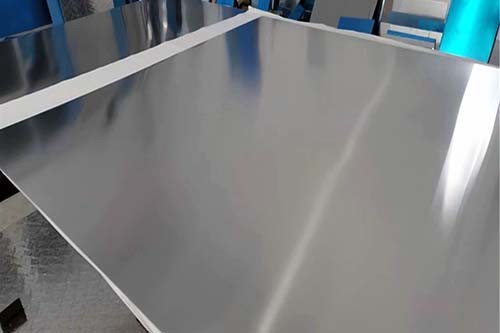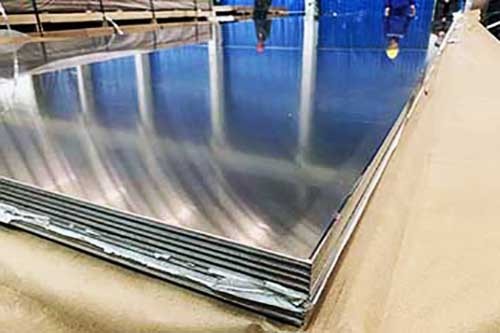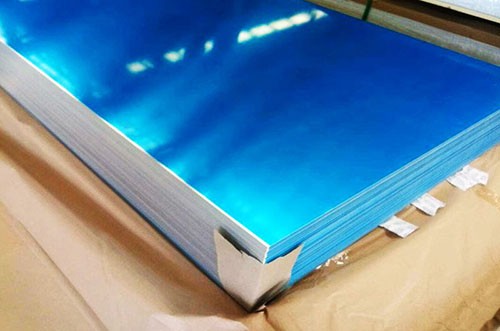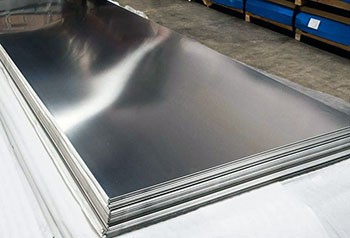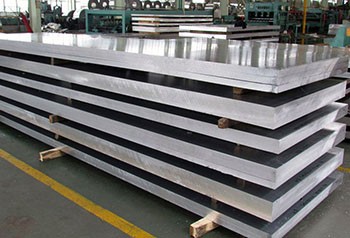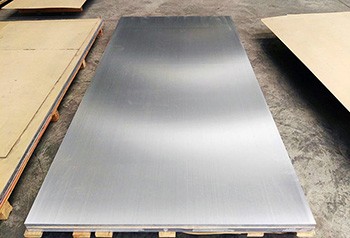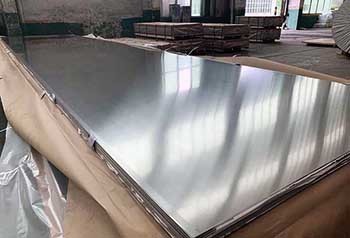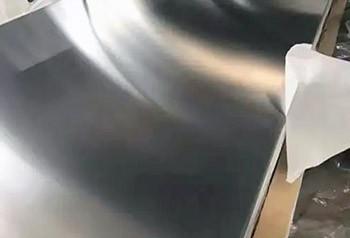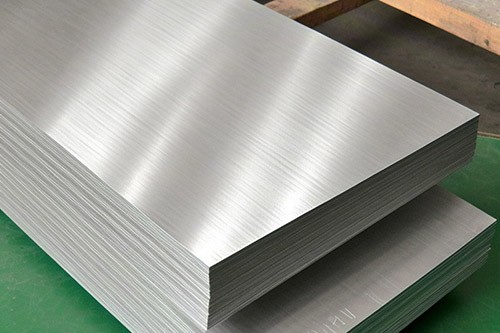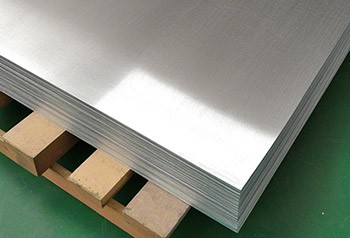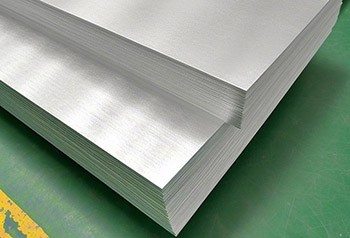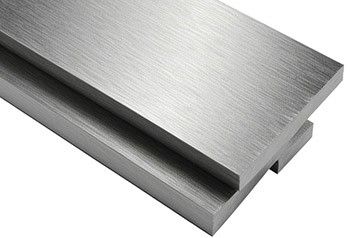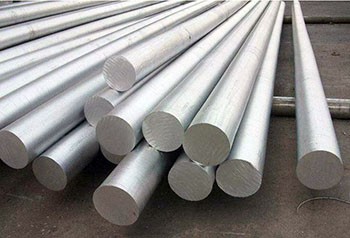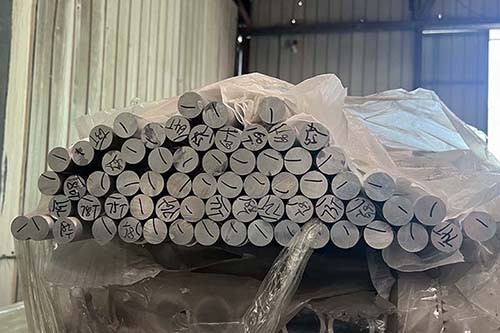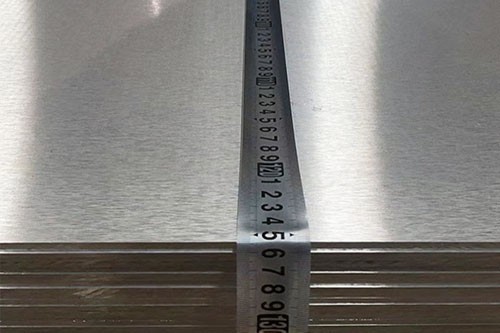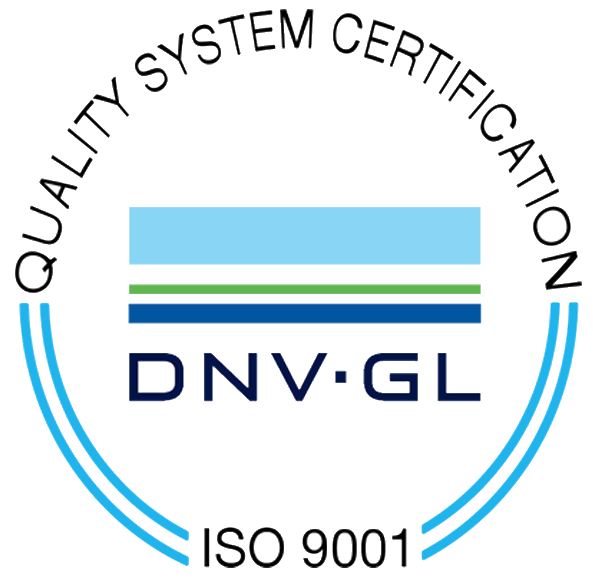5456 H112 Aluminum
5456-H112 aluminum is a type of 5000 series aluminum-magnesium alloy, designed to offer an excellent combination of corrosion resistance and moderate strength, making it particularly suitable for marine and structural applications.
- Alloy Series: 5000 series, primarily using magnesium as the main alloying element.
- Temper Name: H112 indicates the alloy is produced under conditions similar to the as-fabricated (F) state but with controlled strain hardening. This temper is chosen when minimal additional mechanical strengthening is needed, and it is commonly used in applications where weldability and corrosion resistance are critical.
5456 H112 is a marine-grade aluminum alloy, widely used in shipbuilding and marine engineering due to its strength, corrosion resistance, and weldability.
5456-H112 aluminum alloy is a cold-processed and heat-treated aluminum alloy, primarily used in fields that require high corrosion resistance and moderate strength, such as the marine and shipbuilding industries. This alloy has excellent resistance to seawater corrosion, making it particularly suitable for harsh marine environments. Additionally, the H112 temper is an aluminum alloy condition that is not fully aged, offering relatively lower strength but good machinability and weldability.
5456 H112 Aluminum Certifications and Standards
- Meets marine-use certifications from DNV, ABS, BV, and Lloyd's.
- Conforms to ASTM B209, EN 573, and EN 485 standards.
Advantages of 5456 H112 Aluminum Over Competing Alloys
- Corrosion Resistance: Forms a protective oxide layer, performing better in marine environments compared to 6061-T6.
- Strength: Has higher tensile strength than 5083-H116, making it suitable for load-bearing structures.
- Weldability: Compatible with TIG, MIG, and gas tungsten arc welding (GTAW) methods.
- Lightweight: Reduces ship hull weight by approximately 50% compared to steel, improving fuel efficiency.
Comparison Table: 5456 H112 vs. Other Alloys
| Property | 5456 H112 | 5083-H116 | 6061-T6 |
| Tensile Strength | 290 MPa | 275 MPa | 310 MPa |
| Corrosion Resistance | Excellent | Excellent | Good |
| Weldability | Excellent | Excellent | Good |
| Density (g/cm³) | 2.66 | 2.66 | 2.70 |
5456 H112 Aluminum Chemical Composition
| Alloy | 5456 | |
| Si | ≦0.25 | |
| Fe | ≦0.4 | |
| Cu | ≦0.1 | |
| Mn | 0.50-1.0 | |
| Mg | 4.70-5.50 | |
| Cr | 0.05-0.20 | |
| Zn | ≦0.25 | |
| Ti | ≦0.2 | |
| Zr | - | |
| Standard | EN573 | ASTM B928 |
H112 Condition 5456 H112 Characteristics
H112 condition: This is a strain-hardened state of aluminum alloy, characterized by achieving a certain hardness through heat treatment and cold working, but without full aging treatment. This condition generally provides moderate strength and good machinability.
- Strength: Slightly higher than the H111 condition, but much lower than the T-series heat-treated conditions.
- Corrosion Resistance: Excellent, especially suitable for use in marine environments.
- Weldability: Excellent, suitable for various welding processes, providing reliable welded joints.
- Formability: Good, suitable for complex machining and forming operations.
- Fatigue Resistance: Slightly worse than the T6 condition, but still shows sufficient durability in marine environments.
Strength
The strength of 5456 H112 is slightly higher than the H111 condition. The H111 condition typically undergoes light strain hardening but has not undergone any significant heat treatment, resulting in lower strength. In contrast, the H112 condition increases the hardness of the material through cold working and moderate heat treatment, but it does not reach the strength level of the T-series heat-treated conditions. T-series conditions, such as T6, exhibit significantly higher strength because they have undergone full aging treatment. In environments that require high strength, such as aerospace and shipbuilding, T6 materials will perform better, but in applications with moderate strength requirements, the H112 condition of 5456 aluminum alloy still provides adequate strength.
Corrosion Resistance
5456 H112 aluminum alloy demonstrates excellent corrosion resistance, especially suitable for marine environments. It has strong resistance to seawater corrosion and chemical corrosion, making it ideal for use in ships, offshore platforms, and other applications exposed to moist or corrosive environments for extended periods. Compared to the H111 condition, the H112 condition enhances the material's corrosion resistance through cold working and appropriate heat treatment, offering superior resistance in environments with long-term seawater exposure.
Weldability
5456 H112 aluminum alloy excels in weldability and is suitable for various welding processes, including TIG (Tungsten Inert Gas), MIG (Metal Inert Gas), and other common welding methods. Due to its alloy composition and appropriate hardness, the welded joints of 5456 H112 aluminum alloy offer high strength and good durability. Compared to the H111 condition, the H112 condition improves weldability, resulting in more reliable welded joints and better control over deformation and the heat-affected zone during the welding process.
Formability
5456 H112 aluminum alloy has good formability, making it suitable for complex machining and forming operations. Its formability is above average among aluminum alloys, and it can be processed through various methods such as extrusion, stretching, and stamping. In the H112 condition, due to moderate hardening, the material has sufficient strength to effectively withstand stresses generated during forming, making it suitable for producing parts with complex geometries. Compared to the H111 condition, the H112 condition is more suitable for a variety of forming operations.
Fatigue Resistance
The fatigue resistance of 5456 H112 aluminum alloy is slightly worse than that of the T6 condition, but it still possesses sufficient durability, particularly in marine environments. The T6 condition exhibits superior fatigue resistance because it has undergone full aging treatment, allowing it to perform better under repeated loads and extend its service life. Although the H112 condition offers improved fatigue resistance compared to the H111 condition, under high-stress and repetitive loading conditions, it may show earlier fatigue failure. Therefore, the H112 condition of 5456 aluminum alloy is better suited for medium to low-stress structural components, such as ship frames and external parts, whereas the T6 condition is more suitable for applications requiring higher fatigue performance.
5456 H112 Aluminum Alloy Applications
Due to the excellent corrosion resistance of 5456-H112 aluminum alloy, especially in marine environments, it is widely used in shipbuilding, marine engineering, and corrosion-resistant structural components.
Shipbuilding and Marine Structures
5456 H112 aluminum alloy is widely used in shipbuilding and marine structures, especially in ship hulls and ship structural components (such as decks, bulkheads, hatches, and hatch covers), where it provides excellent resistance to seawater corrosion. Due to its outstanding corrosion resistance, 5456 H112 aluminum alloy can withstand long-term exposure to seawater, making it especially suitable for external parts of ships, such as hull sections below the waterline. This alloy condition provides sufficient strength and corrosion resistance, ensuring that the hull and related components have a long service life in harsh marine environments. Additionally, it is suitable for various types of ships, including cargo ships, passenger vessels, and oil tankers, to enhance the durability and stability of the hull.
Marine Engineering and Oilfield Facilities
5456 H112 aluminum alloy is widely applied in marine engineering and oilfield facilities, particularly in oil drilling platforms, oil and gas pipelines, and offshore wind farm platforms. Marine engineering equipment is often exposed to saltwater, moisture, and harsh weather conditions, which demands extremely high corrosion resistance from materials. The excellent corrosion resistance and resistance to marine environmental degradation of 5456 H112 aluminum alloy make it an important structural material for these facilities. The lightweight nature of aluminum helps reduce the weight of the equipment and lowers construction costs, making it particularly suitable for structural components, hulls, and covers of offshore platforms. Its good weldability also provides high machining flexibility for complex offshore platform construction.
Corrosion-Resistant Structural Components
5456 H112 aluminum alloy is suitable for manufacturing corrosion-resistant structural components, particularly in chemical processing equipment, industrial containers, and liquid storage tanks. Many industrial devices need to operate for extended periods in highly corrosive environments, such as chemical reactors, acid and alkali storage tanks, and industrial liquid storage vessels. These devices are often exposed to highly corrosive substances and liquids, and traditional materials like steel may lose strength and durability due to long-term corrosion. 5456 H112 aluminum alloy can effectively resist these corrosive media and maintain the strength and stability of the structure. In environments where chemical substances, saltwater, or other corrosive liquids are involved, the good corrosion resistance and machinability of the H112 condition make it an ideal choice. This aluminum alloy is widely used in equipment manufacturing in chemical plants, refineries, and other industries, ensuring long-term reliability in highly corrosive environments.
5456 H112 Aluminum Alloy Heat Treatment and Processing
Processing: As a non-heat-treatable alloy, 5456-H112 is primarily strengthened through strain hardening during the manufacturing process. It has excellent formability and weldability (compatible with TIG, MIG, and spot welding), and is typically used in the as-fabricated condition with minimal post-processing heat treatment.
5456-H112 aluminum offers a balanced performance with sufficient mechanical strength, excellent corrosion resistance, and reliable manufacturing characteristics, making it an excellent choice for marine structures and other applications where weight reduction and durability are crucial.
- Heat Treatment: The aluminum alloy is first subjected to appropriate annealing treatment to achieve a certain level of plasticity and processability. It is then further hardened through cold working to obtain the required strength.
- Welding: Due to its excellent weldability, 5456-H112 aluminum alloy can be processed using welding methods such as TIG and MIG. After welding, the strength and corrosion resistance of the aluminum alloy are almost unaffected, making it suitable for manufacturing welded structural parts.
- Formability: This alloy has good formability, enabling it to be processed by various methods such as stamping, extrusion, and rolling.
Comparison of 5456 H112 Aluminum Alloy with Other Heat Treatment States
5456 aluminum alloy is a high-strength aluminum alloy commonly used in the marine and shipbuilding industries, with excellent corrosion resistance, particularly suitable for environments that require resistance to seawater corrosion. It exhibits different mechanical properties and applications in various heat treatment states.
5456 aluminum alloy exhibits different performance characteristics and applications depending on the heat treatment state. States such as H111, H112, and H116 are suitable for marine engineering, shipbuilding, and corrosion-resistant structural parts, while states such as H32, H321, and O are better suited for structural applications that require further processing or higher strength.
- H111: The H111 state is typically not subjected to cold working and is suitable for applications that do not require high strength. The H112 state offers improved corrosion resistance and mechanical properties.
- H116: The H116 state undergoes a special heat treatment that provides enhanced corrosion resistance, making it especially suitable for parts exposed to seawater for extended periods.
Advantages and Disadvantages of 5456 H112 Aluminum Alloy
Advantages of 5456 H112 Aluminum Alloy
- Excellent seawater corrosion resistance, making it suitable for marine and ship applications exposed to seawater.
- Good welding performance, suitable for high-strength welded structures.
- Good formability, suitable for various processing methods.
Disadvantages of 5456 H112 Aluminum Alloy
Due to the incomplete aging, the fatigue life of materials in the H112 state is relatively shorter under certain loading conditions.
5456-H112 aluminum alloy is a material with good strength and excellent corrosion resistance, making it ideal for use in marine environments, shipbuilding, marine engineering, and high-corrosion-resistance structural parts. Its relatively lower strength and good processing performance make it an ideal choice for medium-load structural parts that require welding and forming.
Marine aluminum products you may be interested in
-
5052 Marine Grade Aluminum Plate Sheet
In seawater environments, 5052 aluminum alloy has corrosion resistance properties that are unmatched by many other materials.
-
5083 Marine Grade Aluminum Plate Sheet
5083 marine grade aluminum is an aluminum alloy specifically designed for use in marine environments. It is known for its excellent corrosion resistance and high strength, making it ideal for applications such as shipbuilding, hulls, offshore structures and other marine components.
-
5059 Marine Grade Aluminum Plate Sheet
5059 marine-grade aluminum offers many benefits to the shipbuilding industry, including reduced weight, increased load capacity, improved stability and speed, corrosion resistance and versatility.
-
5086 Marine Grade Aluminum Plate Sheet
Marine-grade aluminum alloy 5086 combines corrosion resistance, rust resistance, strength, weldability, formability and resistance to environmental factors, making it ideal for underwater components of ship hulls and other marine applications.
-
5383 Marine Grade Aluminum Plate Sheet
5383 marine grade aluminum plate has excellent corrosion resistance and high strength. Aluminum alloy 5383 is commonly used in shipbuilding and other maritime structures where durability and resistance to salt water corrosion are critical.
-
5456 Marine Grade Aluminum Plate Sheet
5456 marine grade aluminum plate is an economical choice for ship construction. Can be used on baseboards, decks and other upper fittings.
-
5754 Marine Grade Aluminum Plate Sheet
5754 marine grade aluminum plate is an aluminum alloy designed specifically for marine applications with excellent corrosion resistance and high strength.
-
The 5052 O aluminum plate has excellent formability, making it suitable for the complex curved structures and cold-formed components of ship hulls.
-
5456-H111 aluminum alloy is commonly used in the marine and shipbuilding industries, particularly in environments that require resistance to seawater corrosion.
-
5456 aluminum alloy is a high-strength aluminum alloy widely used in marine, shipbuilding, offshore engineering, and other corrosion-resistant structural components.
-
5456 H32 aluminum alloy is widely used in the marine and shipbuilding industries. It has good corrosion resistance and is suitable for anti-corrosion structural components in seawater environments.
-
5456 H321 aluminum alloy is a high-strength aluminum alloy primarily used in the marine and shipbuilding industries, especially for corrosion-resistant structures in seawater environments.
-
5456 O aluminum alloy is a state of the 5456 series, referring to the aluminum alloy that has been fully annealed (O state).
-
5383 H112 aluminum is a corrosion-resistant, medium-strength alloy with excellent formability, making it ideal for marine applications. It is also cost-effective for structural components exposed to harsh environments.
-
5383-H321 aluminum has high strength and excellent corrosion resistance, making it suitable for high-load marine applications, especially in environments that require resistance to intergranular corrosion and exfoliation corrosion.
-
5383-H116 aluminum offers good corrosion resistance through specific heat treatment and cold working, making it suitable for light-load marine applications, especially for long-term use in seawater environments.
-
5383 H34 aluminum alloy is a high-strength aluminum alloy that has undergone strain hardening and stabilization treatments, offering excellent corrosion resistance and weldability. It is widely used in marine, transportation, and construction fields.
-
5383-H32 Aluminum is an aluminum alloy that has undergone strain hardening and stabilization treatment, belonging to the aluminum-magnesium alloy series. The "H32" temper indicates that the alloy has been strain-hardened through cold working and then stabilized by appropriate heat treatment, with strength lying between the annealed (O) and full-hard (H38) states.
-
5383-H111 aluminum alloy is a type of aluminum alloy, which undergoes specific heat treatment and mechanical processing to be in the H111 condition. This alloy is widely used in environments that require good corrosion resistance and moderate strength.
-
5383-O aluminum alloy is the annealed (O condition) version of 5383 aluminum. It belongs to the aluminum-magnesium alloy series and has excellent corrosion resistance, particularly outstanding in marine environments.
-
5059 H116 aluminum alloy is suitable for applications that need to withstand high stresses, long-term fatigue and highly corrosive environments.
-
5059 H111 is a condition of 5059 aluminum alloy, where "H111" indicates that it has undergone certain processing techniques to achieve a strength level lower than the H11 condition, typically through strain hardening and cold working.
-
5059-H321 aluminum alloy is the version of 5059 aluminum alloy in the H321 condition, which has undergone strain hardening and stabilization treatment.
-
As a trusted aluminum plate manufacturer, we specialize in producing high-quality 5083 H321 aluminum plates suitable for marine, transportation, and industrial applications.
-
Our company offers 5083-H116 aluminum plates certified by classification societies (CCS/BV/DNV), featuring excellent corrosion resistance, weldability, and medium strength. They are widely used in ship decks, hull outer plates, LNG storage tanks, and other fields.
-
5083-H111 aluminum is a non-heat-treatable strain-hardened aluminum-magnesium alloy, known for its exceptional corrosion resistance in marine and industrial environments and its ability to maintain high strength even after welding.
-
With 20 years of experience in marine-grade aluminum production, our products are all certified by classification societies (such as CCS, DNV, etc.), and we offer customized solutions upon request.
-
5456 5454 5754 Marine Grade Aluminum Bar
5456 5454 5754 Marine Grade Aluminum Bar has certification from CCS, DNV, NK, CCS, ABS, BV, LR, KR and other classification societies, and its quality fully complies with world marine grade standards.
-
Marine Grade Aluminum Round Bar 5754 5454 5456
The quality of 5754, 5456, and 5454 marine-grade aluminum round bars fully meets the ship classification standards worldwide: CCS, DNV, NK, ABS, BV, LR, KR.
-
5456-H112 aluminum alloy is a cold-processed and heat-treated aluminum alloy, primarily used in fields that require high corrosion resistance and moderate strength, such as the marine and shipbuilding industries.

